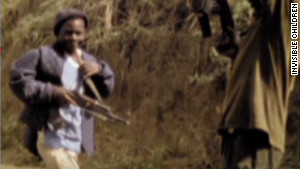Wednesday, 22 August 2012
Saturday, 18 August 2012
Sunday, 12 August 2012
Michael Jackson - Bad
http://youtu.be/dsUXAEzaC3Q
Music video by Michael Jackson performing Bad. © 1987 MJJ Productions Inc.
The English Language In 24 Accents
http://youtu.be/dABo_DCIdpM
Anyway this video is me attempting to do 24 different accents from my own country and from other countries around the world. Hopefully I got most of them right but I may have made mistakes and I can do some better than others. However, I made this video for my friends because I promised them I would do an accent video. I mean no offence to anyone and please don't be upset if I have not included your specific accent or got it wrong. Please enable and read the annotations too, as they explain a few things.
Also please note that I learned most of these accents randomly off of TV, movies and video games over the years and some can be very stereotypical. And yes, I am filming in the garden shed lol as its more quiet in there.
Anyway this video is me attempting to do 24 different accents from my own country and from other countries around the world. Hopefully I got most of them right but I may have made mistakes and I can do some better than others. However, I made this video for my friends because I promised them I would do an accent video. I mean no offence to anyone and please don't be upset if I have not included your specific accent or got it wrong. Please enable and read the annotations too, as they explain a few things.
Also please note that I learned most of these accents randomly off of TV, movies and video games over the years and some can be very stereotypical. And yes, I am filming in the garden shed lol as its more quiet in there.
Thursday, 9 August 2012
Wednesday, 8 August 2012
Face of Agulu Anambra State
Tuesday, 7 August 2012
The enemy within: Who's stealing your company's secrets?

Nearly a third of workers would take information to a new job if they were fired, according to a new study.
STORY HIGHLIGHTS
- Study: One in seven European workers have taken confidential information to new job
- Employees are most inclined to take documents they've worked on
- Almost a third confessed they would deliberately take files if they were sacked
According to a study conducted by information management company Iron Mountain,
a third of 2,031 European office workers surveyed admitted that they
had taken or forwarded confidential information out of the office, and
one in seven had taken confidential information with them to a new job.
Another 31% said they would deliberately remove and share confidential information if they were fired.
Data breach is a common
concern for businesses, but Peter Eglinton, Iron Mountain's Senior Vice
President for UK, Ireland & Norway, says they tend to focus too much
on monitoring for attacks from outside, while "the people side of the
organization and the hard copy are forgotten about."
You can see who's hacking in and taking information, but people don't leave a trail.
Peter Eglinton, Iron Mountain
Peter Eglinton, Iron Mountain
"You can see who's
hacking in and taking information, but people don't leave a trail," he
says. "Therefore, if you don't have good policies in place, it's very
difficult to work out what has happened with information."
Although we may not
always consider the data we work with day in and day out to be
particularly exciting, Eglinton says that in any given business there
are several functions that might use or create information that's
commercially valuable or subject to privacy laws.
"HR or finance will have
an awful lot of access to very sensitive information," Eglinton says.
"Sales and marketing will have access to customer data, and some of the
service organizations will have a lot of information about their
patients or their customers."
Of the workers who
admitted to taking confidential information to a new job, half said they
believed they had a right to take information, and most said they took
information because they had been involved in its creation.
Although pervasive, this
sense of ownership is misguided, says Eglinton. "The information you
create in your daily work doesn't belong to you because you created it,"
he says, "it belongs to the organization that's paying you to do that
job."
The study also revealed
that most of those who had taken information when they left a job had
relieved their employers of customer databases.
This, according to Chris Pounder of UK data protection training organization Amberhawk,
is "a dangerous thing to do." Privacy laws vary from country to
country, but in the EU, for example, any processing of information that
relates to a living person is a breach of the Data Protection Directive.
Although some
consultants and lawyers might be able to negotiate permission to
transfer clients with them when they leave a company, Pounder says: "If
an employee took a database of customers without the consent of their
employer, they are risking a criminal offense.
"And if they did it to set up their own business, they're also vulnerable for someone taking a civil case for damages."
The information you create in your daily work doesn't belong to you because you created it.
Peter Eglinton, Iron Mountain
Peter Eglinton, Iron Mountain
Besides, making a gift
of illegally obtained information is unlikely to ingratiate you to a new
boss. Pounder points out that a new employer who knowingly receives
personal data obtained in breach of data protection laws could also be
liable for damages caused.
So, what can businesses do to protect their data?
Information management
companies offer solutions ranging from encryption software to systems
that allow organizations to track the whereabouts of files across
multiple sites. But Eglinton thinks simply communicating policies
regarding information ownership is a good first step towards alleviating
the problem.
"I don't think you need
to have security guards on the door every day, but reminding people of
the policy, and auditing those processes, would go a long way towards
managing information more securely," he says.
Regardless of how
information leaves a company -- whether due to malice, professional
pride or as more businesses allow telecommuting -- Eglinton believes
there is always cause for concern.
Even those who take
documents home for entirely legitimate reasons and with their employer's
consent might be endangering security. "How do you manage information created on the train
on the way into work?" he asks. "And how do you manage that information
thereafter? If people are taking information out of the office, how do
you know that information comes back or is securely destroyed?"
Eglinton predicts that,
as the volume of information created grows, executives need to consider
"not just the value you get from information, but how you protect it,
because it's a hugely valuable asset, but often nobody has
responsibility for it."
Saturday, 4 August 2012
Nigeria gunmen storm oil ship - two dead, four kidnapped

Gunmen
in Nigeria have stormed an oil barge off the coast, killing two
Nigerian navy sailors and kidnapping four foreigners, a naval officer
says.
The navy has joined the search for the gunmen off the Niger
Delta. Two navy sailors, among a group providing security, were wounded
in the raid.The foreigners are from Indonesia, Thailand, Malaysia and Iran.
Attacks in the Niger Delta have declined since a 2009 amnesty for militants ended years of conflict.
The ship that was attacked belongs to Sea Trucks Group, an oil services firm operating internationally.
The raid happened early in the morning, more than 30 nautical miles (56km) off the coast, the officer said.
The heavily polluted delta is Nigeria's main oil-producing region.
The incident will be of great concern to Nigeria's oil and gas industry at a time when the government has just announced that oil production has reached an all-time high of 2.7m barrels per day, the BBC's Will Ross in Lagos reports.
Critics say the peace deal which allowed the rise in output remains precarious.
The militants targeted foreign oil companies, drawing on local support in a region still blighted by poverty despite huge profits for the multinational energy corporations.
Local people wanted to see more of that wealth used to improve their housing and services.
Despite the amnesty, kidnappings of Nigerians in the Niger Delta have been happening at an alarming rate, our correspondent says.
Piracy is increasing in parts of West Africa, he reports. The International Maritime Bureau says it has recorded 17 pirate attacks in Nigerian waters this year - a significant increase on 2011.
Related Stories
- 01 AUGUST 2012, AFRICA
From other news sites
-
Yahoo! UK and Ireland Gunmen kill 2 sailors, kidnap 4 foreigners in Nigeria 1 hr ago
-
AFP Gunmen kidnap four foreigners off Nigeria 1 hr ago
-
France24 Nigeria: Suspected pirates attack barge off Nigerian coast 3 hrs ago
-
Deutsche Welle Nigeria gunmen abduct foreign oil workers, kill two seamen 4 hrs ago
-
Reuters UK UPDATE 2-Pirates attack ship off Nigeria, kidnap 4 foreigners 5 hrs ago
Friday, 3 August 2012
Wednesday, 1 August 2012
Clinton to make first visit to South Sudan during Africa trip

U.S. Secretary of State Hillary Clinton,
pictured here on July 23, 2012, sets off Tuesday on an 11-day trip.
STORY HIGHLIGHTS
- South Sudan, the world's youngest country, is in conflict with Sudan
- Clinton's visit aims to encourage negotiations between the two sides
- She will also travel to Uganda, which is dealing with an Ebola virus outbreak
- While in Kenya, Clinton will meet the leader of Somalia's transitional government
Clinton sets
off Tuesday on the 11-day trip, which is intended to emphasize U.S.
efforts to strengthen democracy,
encourage economic growth and further peace
and security
in Africa, Victoria Nuland, a State Department spokeswoman, said in a
statement Monday.
The visit begins in
Senegal, a small country on Africa's west coast that has been an outpost
of democratic stability in a region with a history of
electoral chaos, civil wars and coups.
Despite outbreaks of
violence in
Senegal earlier this year surrounding
former President Abdoulaye Wade's decision to seek a controversial
third term
in office, power passed peacefully to the eventual victor in the
presidential election, Macky Sall.
Clinton will
meet with Sall and "deliver a speech applauding the resilience of Senegal's
democratic
institutions and highlighting America's approach to
partnership," Nuland said.
The secretary of state will
then travel to one of the tensest areas of Africa: South Sudan, which has edged
close to full-scale war with Sudan, the nation from which it separated in July
2011 after decades of bloody conflict.
The two African
countries still disagree over the demarcation of the border between them and the
transportation and processing of oil from South Sudan, which
obtained around 70% of the
formerly united country's reserves when it became
independent.
The U.N. Security Council
is pressuring the countries to find a
peaceful resolution of the disputes. Border clashes have displaced at least
150,000 people and created a huge humanitarian crisis.
While in South
Sudan, Clinton will meet President Salva
Kiir in
order to "reaffirm U.S. support and to encourage progress in
negotiations with Sudan to reach agreement on issues related to security,
oil and citizenship," Nuland said.
Clinton's
next stop is Uganda, where the authorities are dealing with an
outbreak of the highly infectious Ebola virus that has
killed at least 14 people this month.
Uganda is "a key
U.S. partner
in promoting regional security,
particularly
in regard to Somalia and in regional efforts to
counter the Lord's Resistance Army," Nuland said.
A highly effective
celebrity-backed social media campaign earlier this year by the nonprofit
group
Invisible Children focused worldwide attention on the Lord's Resistance
Army and its leader, the fugitive warlord Joseph Kony.
The African Union has
stepped up efforts this year to capture
Kony, deploying 5,000 troops in March
after a resurgence in attacks by his
forces displaced thousands of people in Uganda, South Sudan, the
Democratic Republic of Congo and the Central African Republic, according to U.N.
estimates.
Kony is wanted by
the
International Criminal Court at the Hague for
war crimes and crimes against humanity, stemming in part
from allegations of his vicious tactics to conscript children as soldiers and
sex slaves
in his army.
President Barack
Obama ordered 100 troops to central Africa last year to help in the
hunt for Kony. The troops are
advising regional
forces.
After Uganda, Clinton will
visit Kenya, where she will meet local officials, as well as Sheikh Sharif
Ahmed, president of the transitional government of Somalia, which is trying to
emerge from years of civil war.
Security appears to be
improving in Somalia, long considered a
failed state, since African Union troops pushed
Al-Shabaab, an Islamic militant group affiliated with al Qaeda, out of central
Mogadishu last year after prolonged urban fighting.
Clinton will
then head south to Malawi where she will "discuss economic and political
governance," Nuland said.
Lastly, she will
visit South Africa to participate in a strategic dialogue between the
two countries and pay her respects to Nelson Mandela, the former
president.
The frail icon has
not appeared
in public for years, but he was celebrated
worldwide on his 94th birthday earlier this month for his role in
reconciling a country torn apart by
apartheid.
Subscribe to:
Comments (Atom)



